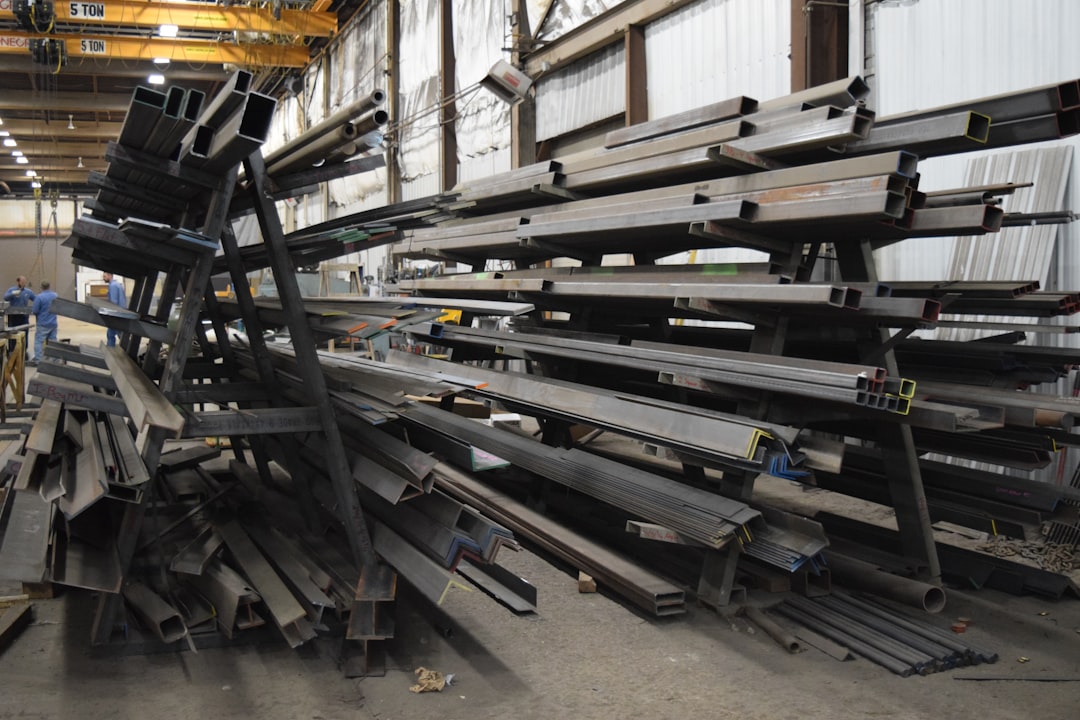The steel industry, a cornerstone of global manufacturing, is undergoing a digital transformation. A key element of this transformation is the rise of B2B matching platforms specifically designed for the steel sector. These platforms are revolutionizing how buyers and sellers connect, negotiate, and transact, leading to increased efficiency, reduced costs, and enhanced market transparency. This comprehensive guide delves into the world of steel B2B matching platforms, exploring their functionalities, benefits, and the future they promise.
Streamlining Steel Procurement: How Platforms Simplify the Buying Process
Traditionally, sourcing steel involved a complex and time-consuming process. Buyers often relied on extensive networks of contacts, lengthy negotiations, and manual data management. Steel B2B matching platforms drastically simplify this process. These platforms offer centralized databases of steel suppliers, allowing buyers to quickly search for specific grades, quantities, and delivery locations. Advanced search filters based on chemical composition, mechanical properties, and certifications ensure buyers find the exact steel they need. Furthermore, platforms often incorporate features like request for quotation (RFQ) systems, allowing buyers to easily solicit bids from multiple suppliers simultaneously, fostering healthy competition and potentially lowering costs.
Beyond simple searching, many platforms offer features like real-time inventory tracking, enabling buyers to identify suppliers with immediate availability. This eliminates delays caused by searching for available stock and accelerates the procurement cycle significantly. The ability to compare quotes side-by-side, based on price, delivery time, and supplier ratings, empowers buyers to make informed decisions quickly and efficiently.
Connecting Steel Suppliers with Global Markets: Expanding Reach and Opportunities
For steel suppliers, B2B matching platforms represent a powerful tool for expanding their market reach. Traditional methods of marketing and sales often limit a supplier’s visibility to a geographically constrained area. Steel B2B platforms, however, connect suppliers with a global network of buyers, transcending geographical barriers. This significantly increases sales opportunities, especially for smaller suppliers who might lack the resources for extensive international marketing campaigns.
The platforms also offer sophisticated tools for managing leads and tracking sales performance. Detailed analytics dashboards provide insights into buyer preferences and market trends, enabling suppliers to refine their marketing strategies and optimize their product offerings. The ability to showcase certifications, quality control measures, and production capacity through detailed profiles enhances credibility and builds trust with potential buyers.
Enhancing Transparency and Trust: Building Stronger Buyer-Supplier Relationships
One of the key advantages of steel B2B matching platforms is their contribution to greater transparency and trust within the industry. The centralized platform provides a single point of access to information, reducing the need for multiple communication channels and minimizing the risk of miscommunication. Supplier ratings and reviews, often integrated into the platform, allow buyers to assess the reliability and quality of different suppliers, fostering a more informed and transparent marketplace.
Furthermore, platforms often incorporate secure communication channels, enabling buyers and sellers to negotiate contracts and share sensitive information safely. This encrypted communication minimizes the risk of data breaches and strengthens the trust between trading partners. This increased transparency and trust can lead to stronger, long-term buyer-supplier relationships, characterized by mutual understanding and collaboration.
Leveraging Data Analytics for Improved Decision-Making: Insights and Optimization
Modern steel B2B matching platforms are not just marketplaces; they are data-driven ecosystems. They collect and analyze vast amounts of data related to steel transactions, market trends, and supplier performance. This data provides valuable insights that can be leveraged by both buyers and sellers to make more informed decisions.
Buyers can use this data to identify cost-effective suppliers, predict future price fluctuations, and optimize their inventory management. Suppliers, on the other hand, can analyze market demand, identify potential bottlenecks in their production processes, and adjust their pricing strategies based on real-time market dynamics. This data-driven approach enhances the efficiency and profitability of both sides of the transaction.
The Future of Steel B2B Matching Platforms: Emerging Trends and Technologies
The steel B2B matching platform landscape is constantly evolving. Emerging trends include the integration of artificial intelligence (AI) and machine learning (ML) to further personalize the user experience and enhance matching algorithms. AI-powered chatbots can handle routine inquiries, while ML algorithms can predict future market demand and optimize pricing strategies. The integration of blockchain technology offers the potential for greater security and transparency in transactions, further enhancing trust within the ecosystem.
Furthermore, we can expect to see greater integration with other industry-specific software and systems, creating a more seamless and interconnected supply chain. The future of steel B2B matching platforms is one of increased automation, enhanced data analytics, and even greater efficiency, ultimately transforming the way the steel industry operates.
In conclusion, steel B2B matching platforms are playing a crucial role in modernizing the steel industry. They are simplifying procurement, expanding market access, enhancing transparency, and driving data-driven decision-making. As these platforms continue to evolve, they promise to further optimize the steel supply chain, benefiting both buyers and sellers alike.
Tags: Steel B2B, Steel Marketplace, Steel Procurement, Steel Suppliers, Metal Industry




